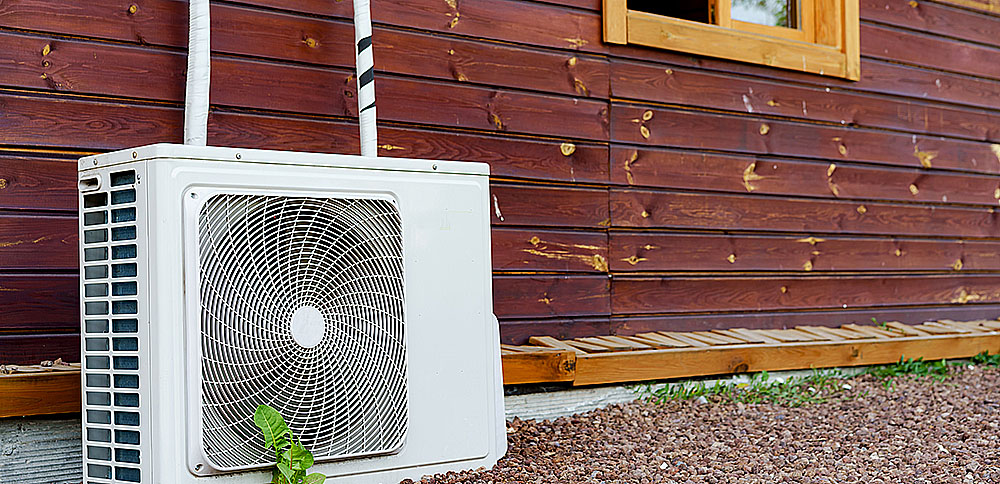AC refrigerant, also called Freon, absorbs heat from the indoor air and expels it outside. If the refrigerant of your AC starts leaking, it will reduce or stop the cooling ability of your HVAC system. You need an air conditioner repair service to check for leaks and fill the refrigerant again. Look for these signs if your AC is not cooling and you’re suspecting a refrigerant leak.
Signs Of Leaking HVAC Refrigerant
Less Cooling
As explained that refrigerant plays its part in absorbing warm air from indoors. So, if the refrigerant is leaking, there will not be sufficient refrigerant in the coils to absorb heat. This will, in turn, reduce the cooling of your AC.
However, this also shows that there is still enough refrigerant that AC is cooling to some extent. You should not delay an inspection from an expert.
AC Is Not Blowing Cool Air
This is the severe phase of a refrigerant leak. When the refrigerant levels keep lowering, at one point the AC stops cooling the indoors altogether. You will notice that the AC is not blowing cool air.
For checking the air temperature, place your hand near the vent or the air handler of the AC. If the air is warm even though the set temperature is not reached, the refrigerant is low.
However, if your AC is not blowing cold, you should also check the air filters and make sure they are clean, check the thermostat settings, clean the condenser coils, and check the ductwork as well.
Cooling Cycles Run Longer Than Usual
Everything related to cooling is linked to the levels of the refrigerant. So, if the refrigerant is leaking and on low levels, the cooling efficiency of your air conditioner will be impacted as well.
You may notice that the cooling cycles of your AC are taking much longer than usual to reach the temperature you have set. This shows that due to the low refringent, the AC has to work more for cooling the home and reaching the temperature you have set.
If you see that your AC’s cooling cycles have been extended, check your thermostat. If the thermostat is fine, the cause of the issue may be low refrigerant levels. Keep in mind that low refrigerant is due to a refrigerant leak.
High Electricity Bills
In a previous point, it was noted that when the refrigerant is low, an AC takes longer to cool the home by extending the cooling cycles. Sometimes, you will feel that your HVAC system is running constantly. This makes your AC susceptible to breakdowns. Plus, the constant or long cycles of your AC use more power leading to an increase in your electricity bill.
If your electricity bills are increasing and you’re clueless about the reason, you should get your HVAC system inspected by HVAC repair services Stony Brook.
Frozen Evaporator Coils
If the evaporator coils of your AC or the outdoor unit are freezing up in summer, the cause can be low refrigerant that’s not sufficient for absorbing heat. When the refrigerant in evaporator coils can’t absorb heat, condensation on the evaporator coils leads to the coils freezing up.
If your evaporator coils ice up and they are not cleaned and defrosted, it can damage other components of the unit as well.
Low Airflow
The major cause of low airflow is not a refrigerant leak, it’s a ductwork leakage or blocked ducts. But low refrigerant can be a cause of low airflow as well. Place your hand on the vent, if you notice cold air but the pressure is less, you may have a low airflow problem.
You should have an expert check the refrigerant levels of your AC and the ductwork for leakages or obstructions.
AC Leaking Water
The last point was about the evaporator coils freezing up due to low refrigerant. In some cases, the evaporator coils freeze up, and the ice thaws due to the heat outside. Due to this, water leaks from the unit. This process keeps repeating. Ice forms and then thaw leading to water leakage.
If you have a ductless air conditioner, the water leakage will be from the indoor unit that’s mounted on the wall. In HVAC units, you will see a puddle of water near the condenser unit of your heating and cooling system.
An Increase In Humidity Indoors
A working air conditioner dehumidifies the indoors which is a part of the cooling process of ACs. When humidity is removed from the air by your AC, you feel more comfortable without feeling the need to lower the thermostat settings for more cooling. So, the dehumidification of an AC can be energy efficient for you.
But if you can’t feel the dehumidification effects of your AC and the air is humid even though the AC is running, the refrigerant may be low due to a leak.
Hissing Sound From The Unit
A refrigerant leak can be anywhere in the coils. Usually, a leak is due to tiny holes or cracks. When refrigerant escape through the holes or cracks in high pressure, it produces a hissing noise. Moreover, if the hole or crack is bigger, the noise transitions to a bubbling or gurgling noise.
So, if your AC is not cooling or has low airflow, you should move near the unit and try to detect a hissing or bubbling noise.
Tiny Bubbles In The Evaporator Coils
If you think that your AC is leaking refrigerant or you heard a hissing or bubbling sound, but you are not sure, look for bubbles in the evaporator coils.
When refrigerant leaks from the hole or cracks in evaporator coils, it may not only produce the hissing or bubbling sound but also produce tiny visible bubbles on the part of the evaporator coils from the refrigerant is leaking.
You can only check it by opening the condenser unit of your HVAC system. You can also hire an expert to check for refrigerant leaks.
A Chloroform-Like Smell
You can detect some AC problems by using your sense of smell as well. For instance, a burning plastic smell means the electrical wiring of your AC is the cause and you should shut down the AC for a full checkup.
In the same way, if you sense a sweet or chloroform-like odor when you go near the condenser unit or inside your house, it may be the smell of the leaking refrigerant.
But keep in mind that there are different types of AC refrigerants and only some of them have a sweet or chloroform-like smell. Some others are completely odorless. So, never rely on only one sign of a refrigerant leak and prefer the help of an air conditioning expert.
Can You Prevent A Refrigerant Leak?
Refrigerant leaks are mostly due to the debris buildup on the evaporator coils that produce formic acid. This acid created holes in evaporator coils. So, regularly clean your HVAC system for preventing a refrigerant leak.
A refrigerant leak can be due to the age of the system as well. If your AC is old enough, you should consider a replacement.
Conclusion
A refrigerant leak can hamper your AC performance and result in damage to the unit. Get in touch with AC repair services Smithtown for the detection of a refrigerant leak.


